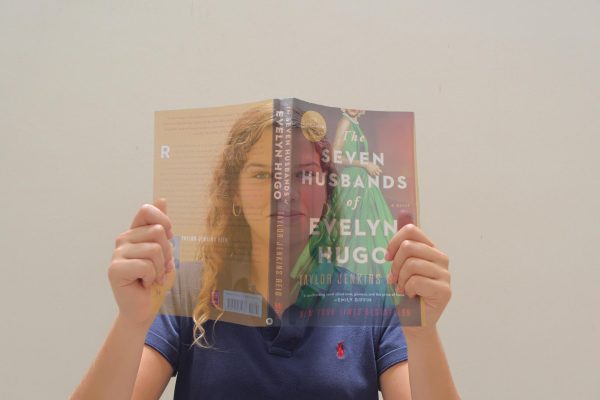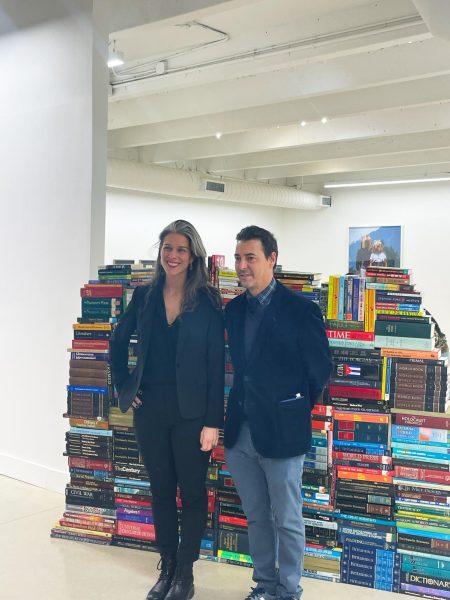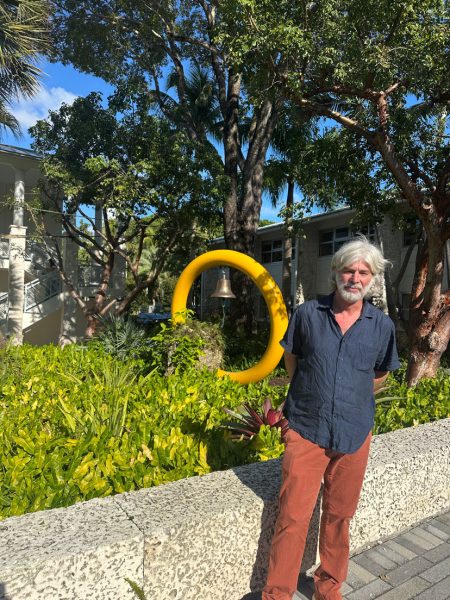If you see one movie before you graduate, please let it be ‘The Graduate’
Starring Dustin Hoffman, Anne Bancroft and Katharine Ross, ‘The Graduate’ follows disillusioned Benjamin Braddock as he returns to his parents’ suburban Los Angeles home after earning his bachelor’s degree. Anxious, aimless and awkward, he begins an affair with his father’s law partner’s wife before falling in love with her daughter. Partially due to the film’s audacious plot, ‘The Graduate’ has cemented its place in pop culture as one of the American Film Institute’s top 20 greatest films of all time, or, as it’s known to modern audiences, “the movie where the phrase ‘Mrs. Robinson’ came from.”
For the first installment of this column, I promise not to bore you with cinematographic lingo. Of course, I would love to rave about each shot’s artistic brilliance, the production design’s innovation, the hypnotizing soundtrack or the film’s enormous impact on cinema history. But really, I selected this film to be the first entry because it has a message that every student needs to hear.
As the ultimate coming-of-age film, ‘The Graduate’ perfectly encapsulates what it means to be young. Through its three main characters, the film explores the dangers of youthful naivete and ultimately concludes that, although none of us know what we are doing, we must thoroughly examine what brings us meaning before finding ourselves blindly fulfilling societal expectations. Semi-spoilers ahead!
Once a college student who was abruptly forced to grow up and abandon her dreams due to an unexpected pregnancy, Mrs. Robinson leads a passionless existence. She represents what Benjamin and her daughter, Elaine, could become if they do not think deeply enough about their futures; her lack of forethought sees her give into the materialism and expectations of her upper middle-class suburban utopia. No longer searching for true connection, Mrs. Robinson’s loss of adolescence drives her to extreme jealousy, striving for control in any way she can, whether through pursuing youth in the form of Benjamin or sabotaging her own young daughter’s opportunities for a better life. Regardless of her cruelty, we cannot help but feel for Mrs. Robinson. We never even learn her first name; instead, her identity is a constant reminder of her status as an ornament to society. Forever tied to the irrational decisions of her youth, we watch Mrs. Robinson wrestle with futility and chronic regret as a result.
Elaine Robinson is her mother’s foil in almost every way, except for an equally condemning experience with youth. Chipper, pure and sweet, Elaine is innocence incarnate. She innately connects with Benjamin and understands his turmoil, showing an inkling of an instinct for applying critical thinking to her surroundings, but she never actually identifies the source of her distress. Elaine lacks autonomy, with her actions being consistently dictated by her parents or by Benjamin. She is not forced to grow, so when Elaine finds herself poised to repeat her mother’s mistakes, the consequences of her actions come as a shock. Inadequate foresight runs in the family; by the end of the film, Elaine too has hardened, finding herself trapped in the same position that her once-spontaneous mother occupies. Through impressionable Elaine, ‘The Graduate’ warns those molded by a world that demands compliance about the dangers of being stuck in childhood and never committing to a search for greater purpose.
Now, I am not implying that the Robinson women’s indiscretions make our protagonist a hero or a good example. Benjamin Braddock is neither thing. He is entitled and idiotic and selfish. But then again, aren’t we all?
Like all young people, Benjamin is first introduced as a blank slate. He could almost be described as endearing. Benjamin’s cringe-worthy interpersonal interactions and constant state of disorientation provide for much of the movie’s initial comedy. Externally, Benjamin is set up for success. He is wealthy, accomplished, athletically inclined, well-educated and talented at following expectations. However, he is the personification of youthful uncertainty and quiet rebellion. Though constantly asked about what he wants to do with his life, he is unable to answer. All he knows is that he wants to be “different” from his parents and their depthless lifestyle. At his graduation party, one of his parents’ friends approaches him about pursuing a job in the plastics industry. This idea repulses Benjamin, as he is already disaffected by the conformity, superficiality and materialism that plastics and childhood represent.
However, our lead’s downfall stems from his inability to pinpoint why he is embittered and his consequent failure to identify the steps he can take to improve his situation. If Elaine does not pursue self-discovery, then Benjamin is the darker personification of youth. He begins by trying to better himself, becomes distracted by worldly pleasures, then tries to ascribe his own purpose to another person and ultimately fails at his mission. He is the youth who gets lazy and takes a shortcut. Benjamin may echo countercultural ideals, but his recklessness sees his self-pity evolve into hedonistic self-destruction throughout his poorly executed search for meaning.
Nothing exemplifies Benjamin’s dysfunctionality better than the second-to-last shot of ‘The Graduate’. One of the most heavily debated shots in cinematic history, the sequence comes after the largest interaction in the film: a literal battle between generations in which youthful narcissism and perceived invincibility are on full display. After boarding a getaway bus, we watch Benjamin and Elaine celebrate in the aftermath when, suddenly, the couple grows solemn and silent. A stillness emerges and a familiar Simon and Garfunkel hook begins to play. A lyrical and thematic darkness returns. By pursuing Elaine and shutting the door on his privileged life, the track star has not taken a shortcut to happiness nor has he escaped the question from which he was running. In fact, Benjamin’s dreaded question has come back with a vengeance and he is left to ask himself: what comes next?
The discomfort we felt at the beginning of the movie was for our protagonist, but as the bus drives away in the final shot, the discomfort we are left with is our own. By joining Benjamin on his journey, we are not just complicit in his oversight, but also in ignoring our personal answers to his existential question. We, not Benjamin, have become the target of the film’s sharpest joke.
So why watch ‘The Graduate’? I promise that the film is not wholly depressing and has quite a few comedic moments, but yes, it thrives in embarrassment. It engages. It begs you to reflect. We used to be Elaine, we are currently Benjamin, and we could be Mrs. Robinson, but by wrestling with tough questions, we are one step closer to finding purpose than any character in this film ever got. ‘The Graduate’ implores us to ignore the distraction of plastics and the seduction of comfort, and to instead think about who we want to become before embarking on our journeys into adulthood…or at the very least, before our buses leave their stations.
‘The Graduate’ is available to stream on Amazon, iTunes, and HBO Max.





